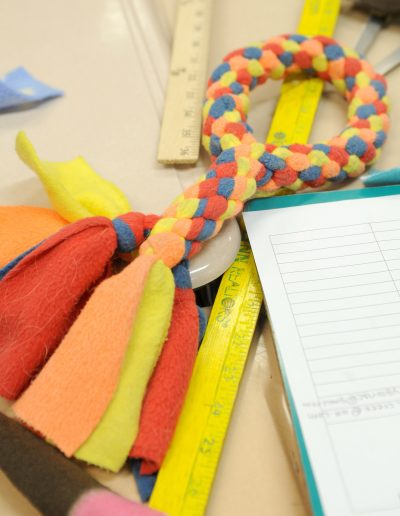By RAINA ZHAO
Staff Writer
For many students going back to school in the fall, participating in clubs is one of the key things to look forward to. Clubs provide opportunities for students to develop interests and passions not found in the classroom. Some even have hopes of starting their own club. Unfortunately, many of those hopes do not translate into reality as numerous potential clubs fail to register each year.
Part of the problem lies in the fact that there are not enough teachers who are available or willing to be club advisors. This leads to many discouraged students who are barred from fulfilling what might be a passion of theirs, even though they have done nothing wrong. “Several clubs reached out to me because they couldn’t find an advisor…I personally had about seven clubs reach out to me, which I think is a huge number, because seven clubs can make a difference on campus,” says Clubs Commissioner Vignesh Iyer. “And this is just new clubs, too. We don’t know how many people didn’t talk to me, and how many people wanted to continue their club but just gave up. So seven clubs were just the clubs that actually reached out to me; there probably were more.”
Some teachers are simply overextended. Many teachers on campus are the advisors of multiple clubs, and must sacrifice multiple lunch periods per week for club meetings. It is understandable that these teachers would not want to take on yet another club–it would be unreasonable to ask them to give up every single lunch period of the week. Teachers have a right to spend their free time however they choose to, and many deserve a well-earned break from their taxing teaching responsibilities. Mrs. Michelle Raitt, for example, relies on Wednesday lunches for a break–nearly every other day of her week is dedicated to a club. “I need Wednesdays for a breather,” she says.
The existence of adjunct duty also affects the number of advisors available. Teachers are bound by adjunct duty hours, which are the required amount of hours each teacher must spend per year on extracurricular activities. These activities can include clubs, athletic events, and performing arts productions. Currently, each teacher is required to devote 6-8 hours. Considering this, one might think that there is plenty of incentive for teachers to advise clubs, as clubs are guaranteed ways to fulfill their adjunct hours. The reality, however, paints a different picture.
The policy for adjunct duty hours favors after-school activities, like football games, over club activities. Teachers receive three adjunct hours for every club they advise. However, actual amount of time they must devote to their club far exceeds three hours–especially if the club includes frequent out-of-school events, which advisors are required to attend. Compare this to simply attending two or three football games. It is much easier to spend two or three nights per year attending a game, which completes almost half of their mandatory adjunct hours, than it is to make a serious commitment and sacrifice many more hours throughout the entire year. Even if a teacher spends more than six hours for a single club, he or she still must take up another club to fulfill the six required adjunct hours, since a single club is only worth three hours. When taking this into consideration, it becomes clear why a teacher would choose to get their adjunct hours over with by going to a few games, rather than giving up their valuable free time repeatedly throughout the entire year.
There are, of course, many enthusiastic teachers who firmly believe in the cause of a club and would advise it regardless of their adjunct duties. However, it is unrealistic to expect that every teacher on campus will identify strongly with a club. If they do not themselves have a passion for the club, why should they give up their precious break time? After all, for many clubs, activities take place not only during lunch, but also outside of school hours–hours which are supposed to be free time for teachers. On the other hand, the enthusiasm of some teachers leads them to take on three, four, five clubs to advise–how many more until their time is completely eaten up?
Yet another cause of the problem may be the high number of staff members that left UHS last year, and the influx of new teachers. The club registration time frame is extremely short, and new teachers might need more time to adjust to the new school environment without immediately committing to a club. “I believe the problem won’t be as massive second semester, because they would’ve had this semester to [adjust],” says Iyer.

Whatever the reasons for this problem, it is not fair to a club if they fail to register because of something out of their control. Every club should have, at the very least, equal opportunity to register. How, then, can we fix this problem?
One way would be to exclude after school events like football games from adjunct hours. If such events were made paid hours instead of adjunct hours, there would be less incentive for teachers who don’t need the extra pay, while still attracting teachers who do. After all, duties such as Saturday School and peer tutoring are paid and attract willing teachers. However, this would be unfair to teachers who are unwilling to sacrifice their lunch time, as the new system would, in effect, force teachers to advise clubs to fulfill adjunct hours. A less unforgiving approach would be to limit the number of after school events a teacher can use for adjunct hours. However, this could result in lower teacher turnout rates, which is unfair to the athletic team or performing arts class participating in the after school event. In fact, it is not clear whether changing the adjunct hours system would even significantly impact the issue–after all, it is difficult to ascertain whether teachers refuse clubs because of adjunct hours or not. In fact, according to Mr. Matt Pate (Assistant Principal), adjunct hours may be negatively impacting the turnout at athletic events. “Because there are so many clubs on campus and teachers do use those club advisor hours to get some adjunct duty…it makes it difficult for us to find people to work events that we need,” he says.
The issue is complex, and much of it centers around free time–something nobody wants to give up. Although a definitive solution may be hard to find, it is clearly unfair to prevent clubs from registering simply because they couldn’t find an advisor in time. New, unique clubs should always be encouraged at UHS, and to do that, we need to give every potential club an equal chance. “I think this is just the start of the discussion,” says Iyer. “[ASB has] solutions, and we are definitely thinking about these things, and we definitely want to improve the situation.”
The Issue With Our Clubs
October 10, 2016

Sean McDonough, 20, is a special education student at South River High School and has a service dog from Canine Companions for Independence. The South River Do Something & Key Club volunteered time to make dog toys to sell for the charity. (Paul W. Gillespie/Baltimore Sun Media Group/TNS)
1
0
Donate to Sword & Shield
$180
$1000
Contributed
Our Goal
Your donation will support the student journalists of University High School. Your contribution will allow us to purchase equipment and cover our annual website hosting costs.
More to Discover














SouthCaliGirl • Oct 10, 2016 at 9:49 am
I certainly see the dilemma with having about 100 teachers and more than 100 clubs. And I realize that there are most likely school, district, and state rules that must be followed. However, where are the parents in this equation? Why is it only the school’s and the teachers’ responsibility to foster and support the extra-curricular interests of the students? What about co-advisor positions that make it possible for parents and teachers to share the responsibilities while allowing teachers to retain oversight? As parents, we need to step up and be there for our kids and not expect the educational system to be solely responsible for all aspects of our children’s personal development.